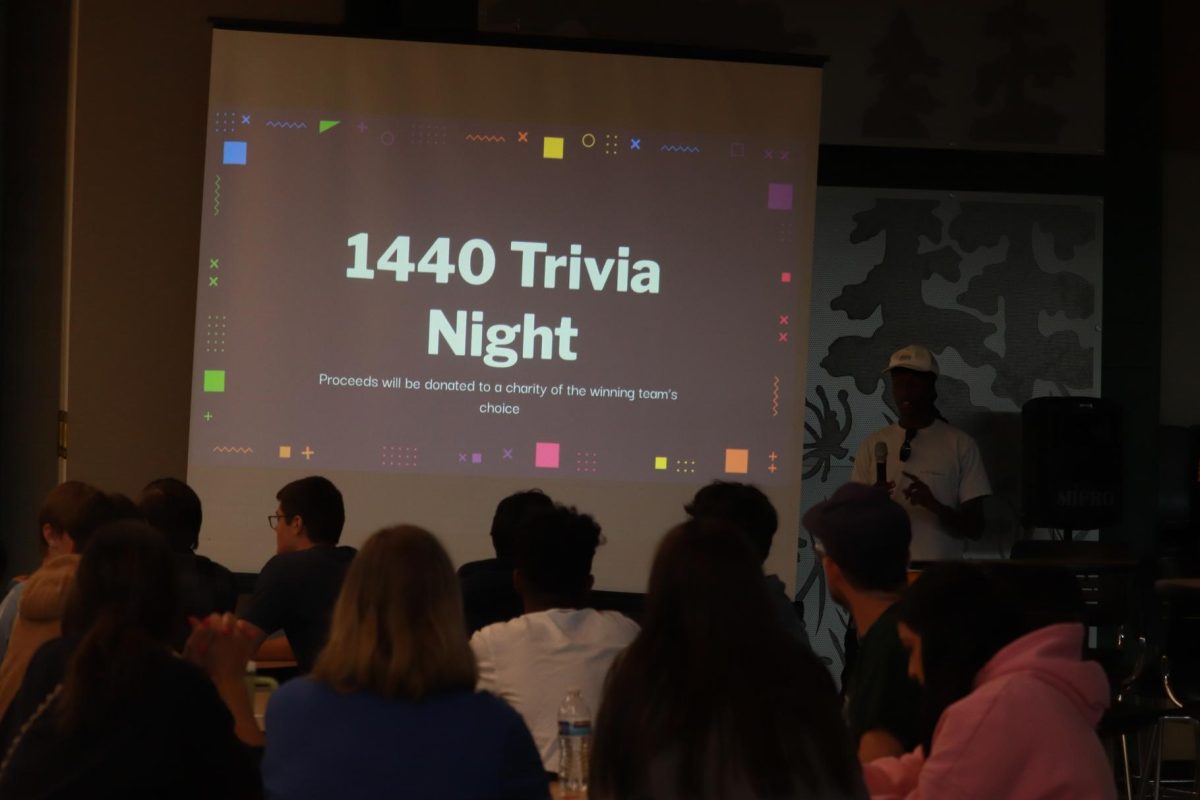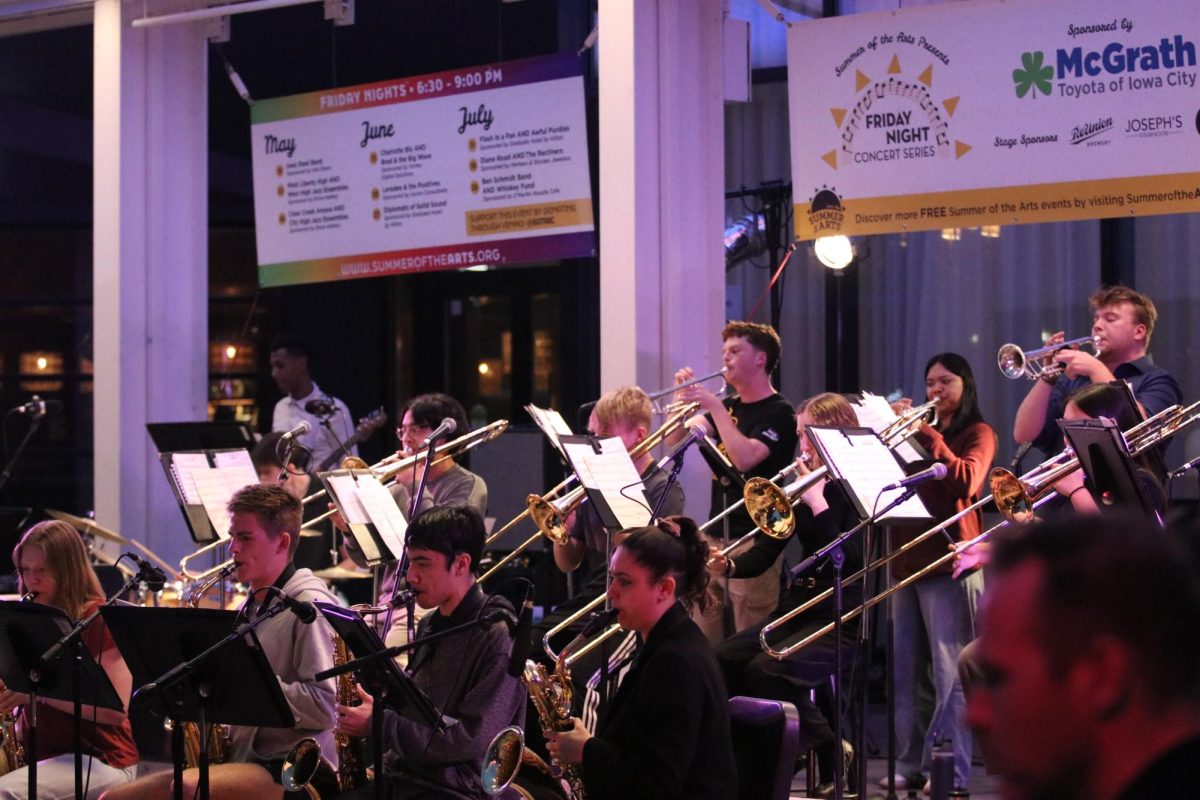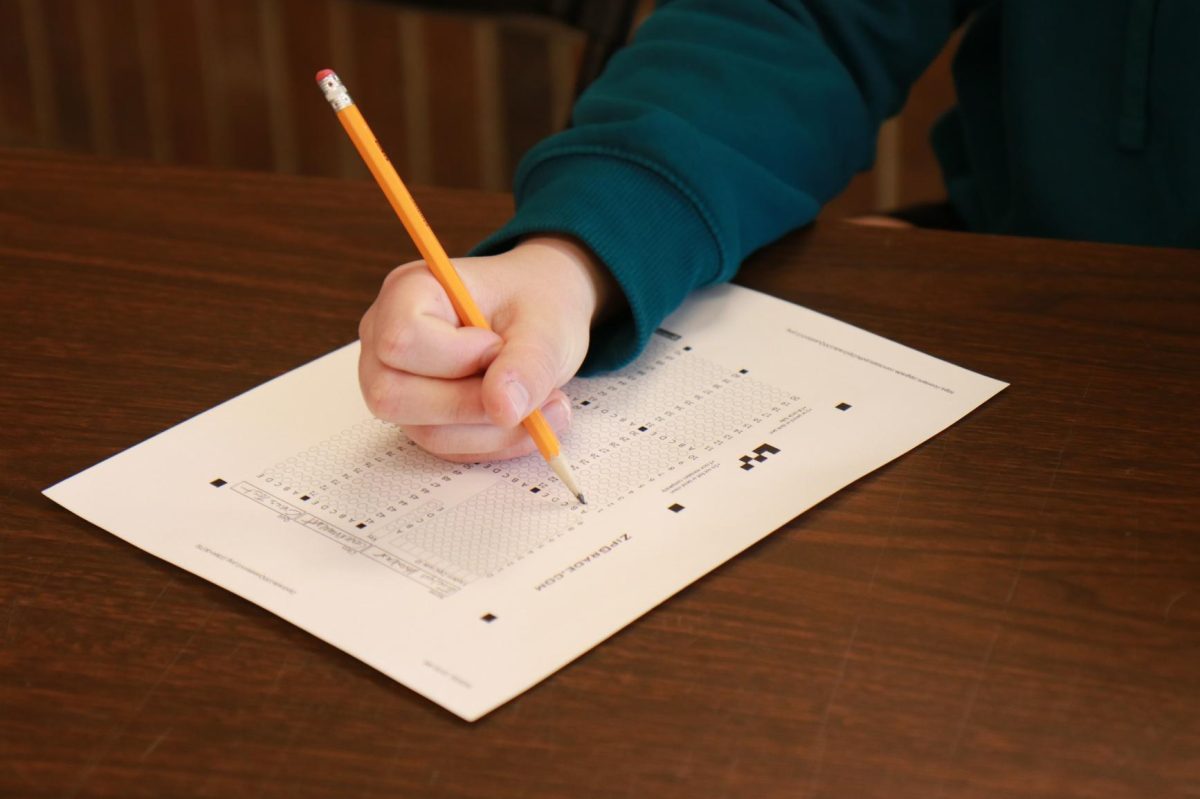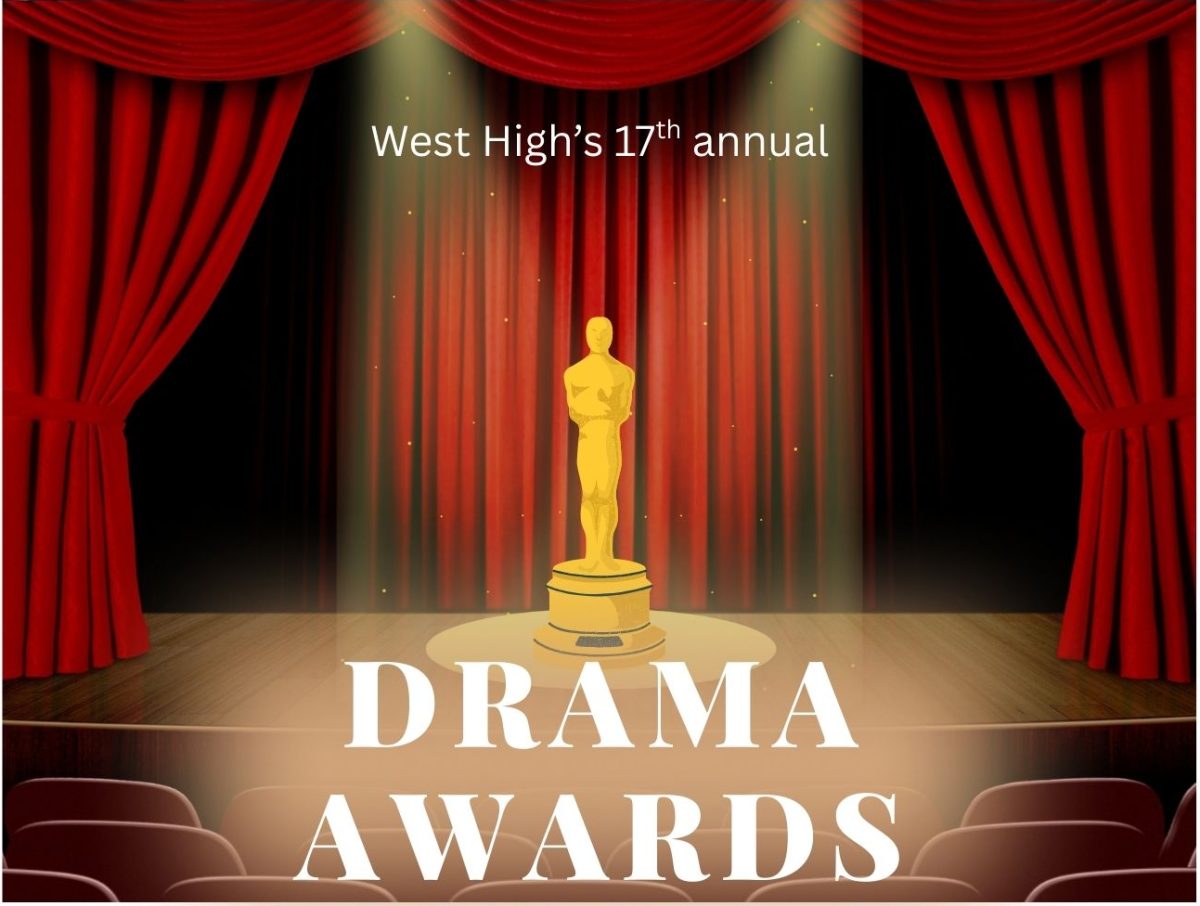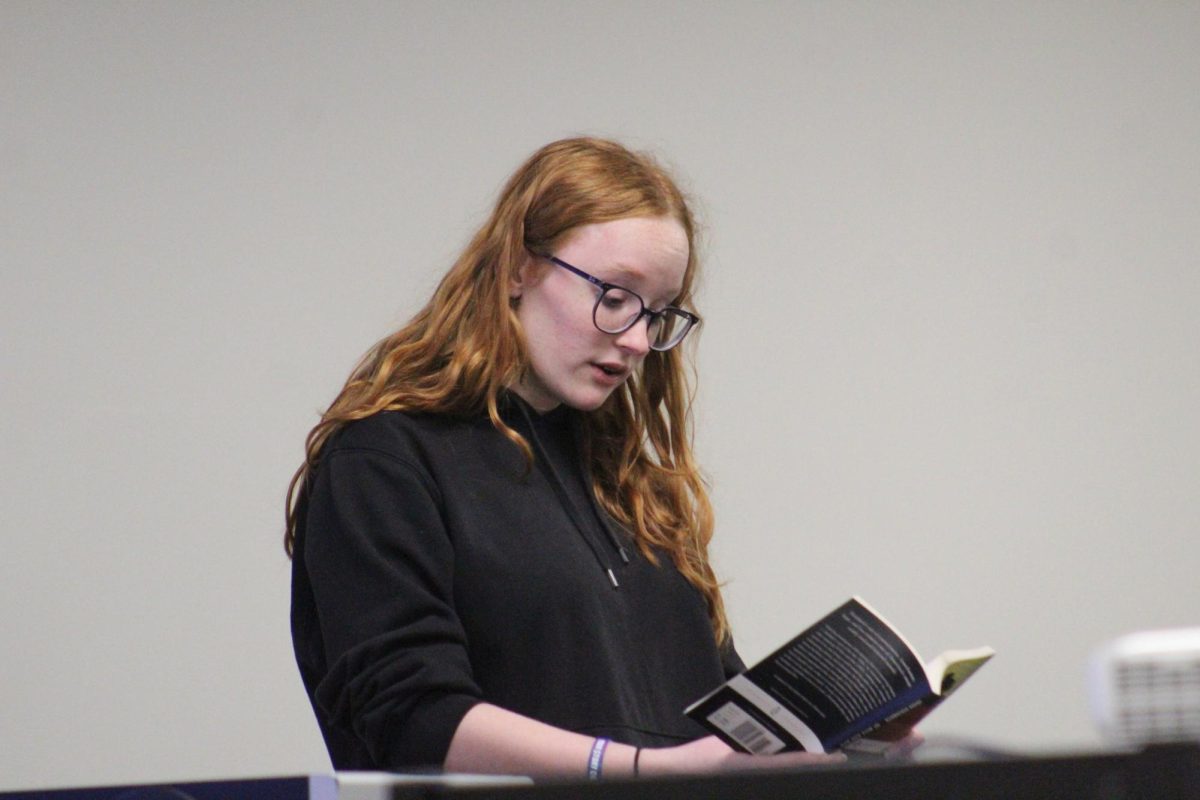Almost exactly two years after Senate File 496 was signed by Iowa Gov. Kim Reynolds, its book ban was blocked a second time by a federal judge.
SF 496’s 17 pages included many provisions, such as a ban on teaching LGBTQ+ topics in grades K-6, guardian notification if a student requests a teacher use different pronouns for them and a ban on books containing “sex acts” in public school libraries.
The law’s book ban faced an injunction from a federal judge, but was overturned after the state appealed the injunction and went back into effect on August 9, 2024. The appeals court said they didn’t entirely agree with the judge’s reasoning, and the decision went back down to the original court.
Almost seven months later, the same federal blocked the book ban again after clarifying his position. West High’s librarians put books that had been banned under the law back on shelves last week.
“Because of this court ruling, they can’t enforce [the ban]. So school districts have interpreted that legally as we have cover for putting the books back…because this judge says the law has to be paused while the court cases proceed” said West’s Head Librarian, Jill Hofmockel.
The block on SF 496 is not permanent. The judge ruled on whether or not the ban can be enforced while it is being challenged, not the constitutionality of the law itself. As of now, the block is in place while two different lawsuits challenging the law are being decided. One lawsuit, filed by Penguin Random House and the Iowa State Education Association, specifically targets the book ban portion of the law.
“At the heart of this injunction is the lawsuit that was filed primarily by Penguin [Random House] Publishing. A bunch of authors [signed on] like Jodi Picoult and John Green and Malinda Lo.” Hofmockel said.
Lisa Petrie, the ICCSD’s K-12 Library Coordinator, signed on as a plaintiff to this lawsuit — a decision she said she made independently from the district.
“What is happening in Iowa now is the antithesis of supporting and trusting our education professionals, and is antithetical to the foundation of an open society as the free exchange of ideas. I feel it is my civic duty to use my expertise to try to overturn this law,” Petrie said.

The other lawsuit also argues other parts of the law are unconstitutional, specifically the areas targeting LGBTQ+ youth.
Over 70 titles were banned in the Iowa City Community School District, according to the Des Moines Register. Because the criteria that requires a book to be banned is the presence of a “sex act” which is defined in the law, the kids of books banned under the law vary widely.
“They’re all over the place…There’s some biographies, there’s some people’s true life stories that are in there. There are some non-fiction books that are books about sex, books about consent, that are non-fiction,” Hofmockel said. “There are realistic fiction. One of the books we had to pull is a book about World War II that describes called The Rape of Nanking, which is a true journalistic account of the experience of Japanese people in World War II. And there’s a scene in there that describes soldiers were raping a woman, and we had to pull that book. That book is not about sex, that’s about history. It’s about reality right?”
West High students have not let SF 496 stop them from reading banned titles. Sophomore Alice Gooblar-Perovic co-founded West’s banned book club this year for the purpose of reading books that have been widely subject to bans around the United States. She said the club had to be unofficial last year because they feared getting teachers in trouble for being out of compliance with Iowa law.
“Clearly [SF 496] was banning books, but it’s pretty obvious that it’s more aimed at trying to get teachers in trouble and librarians [in trouble] for distributing the books,” Gooblar-Perovic said. “So we were really worried about getting a teacher sponsor, which is required for clubs at West, because if we had a teacher who’s supporting the club, then it could be seen as like them giving us access to those banned books.”
Two of the books the club read this year were “Fahrenheit 451” by Ray Bradbury and “The Handmaid’s Tale” by Margaret Atwood. While “Fahrenheit 451” isn’t banned in Iowa, it has been banned other places around the world. “The Handmaid’s Tale” has been removed from shelves because of SF 496.
“[Fahrenheit 451], it’s literally a book about burning books and censorship. And it’s so funny because it’s been banned in a lot of places, and the irony is insane. You need to read those books to understand the dangers of book banning, and they’re banning [them],” Gooblar-Perovic said.
Iowa Republicans who support the law often say its purpose is to protect children from sexually explicit and “pornographic” content. SF 496 is one of many controversial laws Iowa Republicans characterize as “common sense.”
“If you’re a parent, and you don’t want your child to be exposed to something because you think that’s dangerous for them, or you’re saying, ‘Okay, maybe my kid isn’t ready for something like this,’ [you can]… No one’s saying your parents can’t get involved and say, ‘Hey, you can’t read this book,'” Gooblar-Perovic said. “But the idea of banning it or taking it away from everyone, when so many of these books are specifically showing minority stories and things like that [and] the sex act isn’t the main point of the book, just saying, ‘oh, because of this, the whole thing is bad for everyone’ is such a generalization.”
While the lawsuits are being decided, a process Petrie said can take months, if not years, the ban’s permanence remains up for debate. The block could be lifted again, or it could stay in place until the lawsuits are decided. Regardless, those who oppose book bans will keep fighting them.
“I believe that book bans are unconstitutional and prejudicial, with implications that extend far beyond the classroom,” Petrie said. “They inhibit personal growth, understanding, and readiness to participate in our democracy. Book bans take various forms, from restrictions to removals and rating systems. Even if some students can obtain books independently, bans communicate a powerful stigma that leads to self-censorship and fear.”
Subscribe to our newsletter!
"*" indicates required fields





